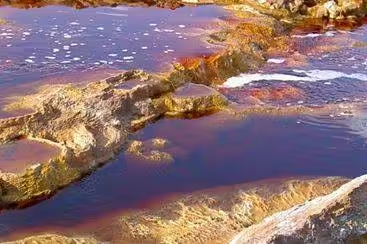The International Council on Mining and Metals (ICMM) and the International Network for Acid Prevention (INAP) have joined forces.
They aim to help mining companies prevent and reduce water pollution caused by acid rock drainage and metal leaching. This collaboration seeks to protect water quality and lower long-term cleanup costs.
The main focus of this partnership is to create a new resource. This resource will assist non-specialists in applying INAP’s Global Acid Rock Drainage (GARD) Guide in mining operations. The expected publication date for the results of this collaboration is early 2025.
Also Read: Battery materials and the growing importance of urban ore
Proactive Planning for Water Protection
Emma Gagen, ICMM’s Environment Director, emphasized the importance of water and nature in sustaining the environment, economy, and human health.
She stated that the mining industry must address environmental and community impacts from the earliest stages of planning.
Acid rock drainage and metal leaching can be avoided with proper planning. The ICMM and INAP collaboration aims to provide practical tools to help safeguard water quality around mining sites.
Gilles Tremblay, INAP’s Technical Manager, highlighted INAP’s commitment to leading practices in managing acid rock drainage and metal leaching risks.
He welcomed the partnership with ICMM and noted that the new resource would be a valuable addition to INAP’s source control strategies.
Acid rock drainage and metal leaching are natural processes that occur when sulphide minerals in rocks are exposed to air and water.
This exposure leads to the formation of sulphuric acid, which can cause highly acidic water. If not managed properly, this water can leach metals from rocks, contaminating the surrounding environment. Proper management and early intervention throughout the mining process are essential to prevent these issues.
In January 2017, ICMM released a Water Stewardship Position Statement. It requires its members to practice responsible water management. This includes transparent governance, efficient water use, and collaboration with stakeholders to promote sustainable practices.

